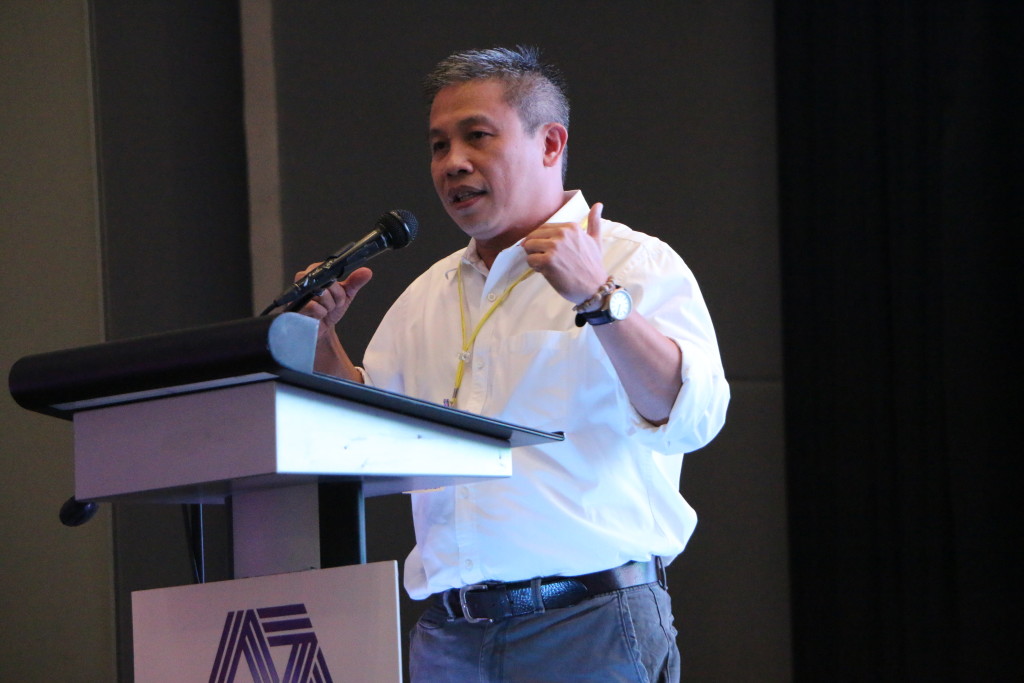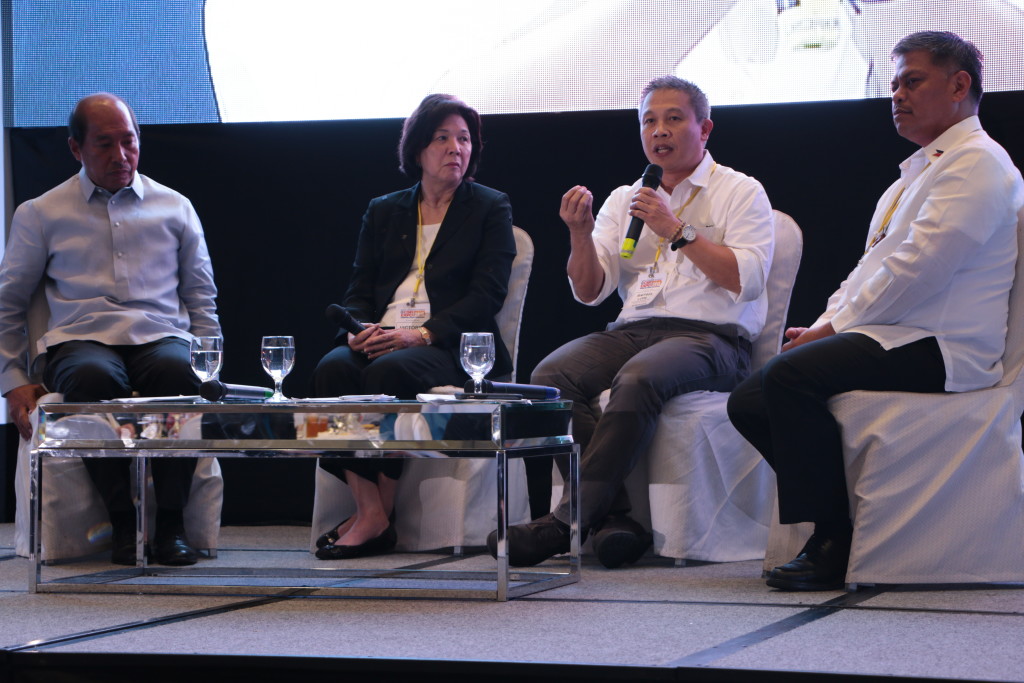PBSP urges businesses to help alleviate poverty

UNIFIED ACTION-Philippine Business for Social Progress (PBSP) executive director Rafael Lopa encourages the business sector to come together and identify common grounds to make CSR programs more responsive and generate greater impact to society.

Businesses over the years have evolved from being prime movers of the country’s growth and development to social enterprises that not only provide employment and opportunities but also give back to society through corporate social responsibility (CSR) programs.
CSR today, however, demands more strategic solutions to new challenges and systemic problems in order to sustain the momentum of national progress and development.
During the recent League of Corporate Foundations (LCF) Expo forum in Taguig City, PBSP executive director Rafael Lopa called on the business community, especially the corporate foundations, to strengthen collaborations and identify mutually reinforcing activities that would enable them address social problems on a larger scale while also addressing the root causes of poverty.
“We need to work together in defining those sweet spots or common areas of work in any field, from environment, health, education, and livelihood. We need to identify the agenda convergence that we need to undertake. Let us be proactive and deliberate in creating that backbone where the secretariat works behind the scenes and encourages good groups which are making good things, to converge around serious problems of society,” he said.
This convergence, according to him, would eliminate duplication of work which will allow CSR groups to focus their efforts on specific areas and help reduce poverty through a unified plan of action. Failing to do so would simply answer the short-term needs of a community and not the holistic requirement for a sustained growth.
Lopa said, “There is this goal for a more collective and coordinated effort to actually bring all this different components together in very specific geographic coverages. For instance, in education, school-based initiatives that are common to everybody can be introduced so we can bring in all components together with government and hopefully build a better learning environment, better health delivery system, and better livelihood delivery system that allow for different groups to ship in. This is because the scale of the problem is so huge for any single organization.”
Further citing education as an example, Lopa said that it is also necessary to identify shared key metrics or common scorecards such as the National Achievement Test results, which will serve as the measurement of success or evidence that the common agenda have created the desired impact.
“As you fund classroom constructions, you realize that you cannot just give classrooms. You also want to improve the results of the National Achievement Test. Some of the problems that we keep on encountering is they (students) are not able to finish school or are not able to go to school because they are hungry. I know many of you here in the foundations funded in-school feeding programs to make sure that kids go to school and are fed so that they can concentrate. Beyond that, you need teachers, textbooks, and a lot of other interventions to create a collective supply of goods and services that will meet the demand of employment and survival for the youth,” Lopa stressed.
Established in 1970, PBSP is one of the pioneers in CSR. Composed of various small, medium, and large-scale enterprises, the largest business sector-led development organization has united the nation’s business sector towards a vision of a poverty-free Philippines.
United Nations Development Program country director Titon Mitra said that if the private sector is really serious about inclusive development, it has to identify priority policies and investments for the country based on the Sustainable Development Goals (SDGs) agenda.
“The kind of multi-stakeholder process with active private sector participation and active leadership is essential to tackle the complex challenges of sustainable and inclusive development. Philippine Business for Social Progress led the formulation of the Philippines’ MDG (Millennium Development Goal) framework to business action through a series of consultation with business executives and leaders of corporate foundations, corporate officers, government partners, and the donor community. The framework outlined how the business sector can help attain the MDG through core business, social investment, and policy advocacy in the areas of poverty, health, education, and environment. Importantly, this (initiative) mobilized around PhP2.5 billion in corporate investments from 2005 to 2010 for the implementation of MDG initiatives,” he said.
Mitra also highlighted the strategic position of the Philippine business community to work with government leaders and to achieve MDGs and end extreme poverty in the country.
– 30 –








